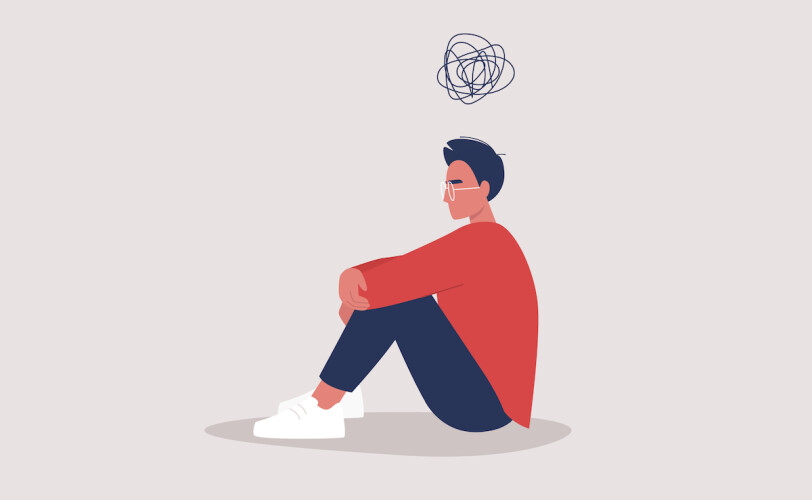How to overcome feelings of shame around being gay
As a boy growing up, were you ever told not to play with ‘girls’ toys? Asked about when you will get a girlfriend? Or told not to wear pink? Perhaps you felt uneasy about having to play football in school or dreaded holiday family gatherings where you had to pretend to be someone different for fear of being outed.

Most likely, such attitudes, expectations and questions have made you feel like an outsider, not fitting in with others around you. Perhaps it has caused a sense of embarrassment, feeling insecure and having a dislike for yourself and those around you. Experiencing such distressing feelings can have a substantial impact on the way you view yourself and how you relate to others. Unsurprisingly, it can also have profound effects on your self-esteem and self-worth.
Is it shame or guilt?
Shame and guilt are often used interchangeably. They both describe negative emotions in response to our actions, but they have very different meanings. The simplest way to distinguish them is that shame is about character, whereas guilt is about action.
Guilt is an emotional discomfort you feel when you did something wrong. On the other hand, shame is not about doing something wrong. Shame is the feeling and belief that your whole self is wrong. It is a self-conscious emotion that mirrors our feelings of inadequacy and unworthiness.
Gay shame – is there such a thing?
Despite significant changes in attitudes and regulations around gay rights in recent decades, growing up can still be incredibly tough for many gay men. They are often exposed to traumatic experiences in multiple areas of their lives including discrimination, rejection, repression, and societal stigma. Unfortunately, these repeated exposures can lead to sustained levels of internalised shame (also known as gay shame).
Gay shame can refer to any feelings of inferiority due to your sexuality/gender identity. Living in constant fear of being outed, monitoring your mannerisms, and having to scan your surroundings to assess safety can increase anxiety and ultimately have serious impacts on mental health.
Classic signs of shame for gay men
If you are living with gay shame, the following signs may sound familiar:
- Denying or suppressing your romantic and sexual emotions.
- Discomfort with other gay people including judging, hating or bullying LGBTQ+ people.
- Self-monitoring your behaviours, mannerisms, ideas, and beliefs.
- Keeping same-sex sexual relationships secret out of shame.
- Attempts to pass as heterosexual, sometimes marrying someone of the other sex to gain social approval.
While these coping strategies may provide you with temporary relief, they can also exacerbate problems with maintaining positive self-worth, personal relationships, and overall mental health.
Overcoming shame through therapy
You should not have to suffer from the impact of shame for being who you are. While it may not be severely impacting your everyday life, it can be helpful to speak with a professional and expand on your range of coping mechanisms.
Humans heal best through relationships and that includes relationships with caring therapists who “get” what it means to be gay in our society. Therapy can provide you with a safe environment to share your thoughts and process your emotions. It also can provide you with an opportunity to develop more self-confidence and self-compassion.

Find a therapist dealing with LGBTQ+ counselling
All therapists are verified professionals


